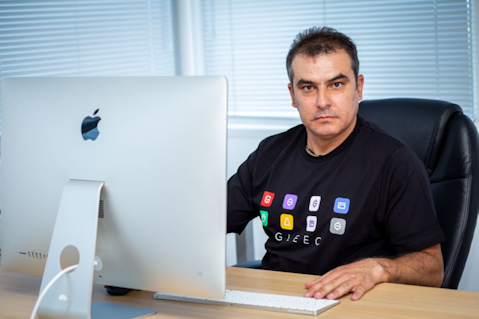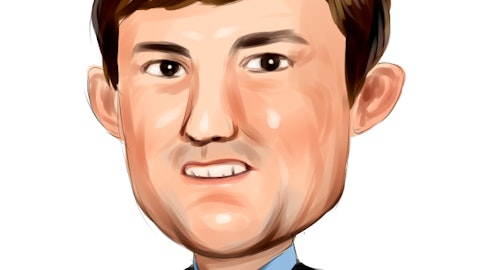From decentralized finance (DeFi), NFTs, and a steadily rising Bitcoin price, the cryptocurrency world has enjoyed rapt attention over the last several months.
Institutional players continue to signal openness towards digital assets. While government entities and regulators still might admit reservations about cryptocurrency, they are beginning to acknowledge digital assets are here to stay.
Daniel Dimitrov, blockchain expert and CEO of Gleec, a decentralized digital ecosystem providing a range of products, asserts the coronavirus pandemic has also played a large part in shifting perspectives towards crypto.

Daniel Dimitrov (Image Source: Gleec)
In a recent interview touching on topics pertaining to the crypto card industry, the future of cutting-edge concepts like NFTs, and the influence of institutional attention in the crypto space, Dimitrov lays out his vision on how the pandemic and attention from legacy financial entities impact crypto’s future.
Tesla & Elon Musk: Trendsetters Of The Crypto Industry?
Tesla made headlines in early February after announcing in an SEC filing that it bought $1.5 billion in Bitcoin, news sending the price of the flagship cryptocurrency up. Tesla founder Elon Musk has not been shy about expressing enthusiasm about crypto on his own time, gaining notoriety for tweeting, sometimes in a flurry, about an altcoin named Dogecoin.
Musk’s words have an impact. One early February survey revealed about a third of respondents made a crypto investment or thought about doing so after reading Musk’s tweets.
Dimitrov believes Tesla’s Bitcoin buying spree might not be the best for shareholders as he admits “some investors will see adding a crypto asset to a portfolio as something that could influence the stock’s volatility.”
However, he explains the choice is good for the crypto industry since “it’s a good look to see a major company adding Bitcoin in a time of massive global debt and financial uncertainty.”
When it comes to Musk’s focus on an altcoin like Doge, Dimitrov argues it’s a bit murkier if institutional attention on a lesser-known coin is beneficial.
“Depends on who you’re asking” he muses.
“Obviously Elon keeps Tweeting about Doge and the price hasn’t really been pumping lately. But for all those who got into the coin before he started talking about it, good for them. When thinking about the recent charges concerning John McAfee, there’s an element of deception with these lesser-known altcoins and their promotion that we can’t ignore.
Tesla and Musk are just a few of the many institutional players who have dipped their toes in the crypto world. Just about a week after Tesla’s purchase, North America’s first Bitcoin ETF (BTCC) launched on the Toronto Stock Exchange.
The fund enjoyed high demand, with $165 million in trade volume over the first 24 hours.
Dimitrov thinks BTCC’s “strong first day speaks for itself” and signals clear demand for ETFs and similarly focused crypto investment vehicles, arguing the pattern of strong investment prospects would continue.
Will Financial Heavyweights Kill Crypto’s Potential or Boost The Industry?
When asked about the decision by payment processors like Mastercard to start accepting crypto, Dimitrov suggests the justification is based on understanding crypto has staying power.
He explains there “were enough questions with Libra back in 2019 that pulling out made sense…I’d imagine now they realize crypto ‘isn’t going away’ so they might as well jump in on the industry. Though I’m curious what their plan is as it seems like the only big coin to really follow their desired standards would be USDC.”
In his eyes, the natural expansion of the crypto card industry as a result of decisions by companies like Mastercard is really “more of a stepping stone” to further innovation.
Discussions about institutional attention in the crypto world inevitably lead back to a key question; how does the ‘decentralized and open ethos’ many associate with digital assets balance with traditional finance.
Dimitrov doesn’t mince words, admitting juggling these two points is “going to be a huge challenge but we knew this question was coming.”
Still, he remarks “there’s always going to be projects who will innovate and present products with a private and decentralized concept. That demand will never go away. But of course, institutional money is hard to ignore for some.”
In his eyes, the growth of decentralized finance (DeFi) will lead to continued Bitcoin market dispersion, cultivating a situation where “the future will bend towards decentralization overall,” in his eyes.
The Future Of The Crypto Sphere and How Today’s Activity Shapes Tomorrow
One of the biggest hopes of the crypto and blockchain ecosystem is the potential to improve on, or entirely replace legacy financial institutions. According to Dimitrov, this trend is seen most poignantly across the crypto banking field.
He argues digital asset-based banking is a
“Big winner for emerging markets like Turkey who are sort of stuck between the EU and Asian markets. A lot of talent in the banking sector is tired of the bureaucracy and crypto banking is an exciting new field to put their abilities towards. Another [area of success] is lowering the insane interest rates seen by some traditional banks who just have a ton of debt.”
When questioned on Coinbase’s decision to go public, Dimitrov states he’s optimistic the direct listing will improve public trust in crypto exchanges due to a perception of more openness.
To him, “the key will be if other crypto companies follow suit. A lot is riding on how Coinbase performs.”
Despite Coinbase’s intent on going public, Dimitrov isn’t so sure legacy crypto exchanges are interested in embracing innovative elements of the virtual currency world, like DeFi.
He explains how “Coinbase lists DeFi as a potential competitor in their S-1 prospectus and they’ve also invested in Compound, something that I guess could impact Coinbase’s positioning. We’ll see how they react with Layer 2 decentralized exchanges as some of those will have user experiences like Coinbase.”
He’s also pessimistic about the role governmental entities will continue to take towards crypto.
Mentioning Treasury Secretary Janet Yellen’s comments in February about ‘extremely inefficient’ Bitcoin, he admits “the global financial establishment isn’t going to make overtures with regulation to Bitcoin and other crypto holders.”
Can Crypto Overcome Some Of Its Biggest Challenges?
Many have expressed concerns about the immense environmental concerns with Bitcoin mining. Some worry about the immense consumption of power and its ramifications when it comes to energy consumption and production.
Dimitrov believes innovation is the key to tackling questions about environmental impact. I think there’s something to say about environmental concerns, he explains.
“However, there’s a lot of innovation though that isn’t talked about a lot. I saw in Sichuan China Bitcoin miners are able to take advantage of an overabundance of electricity due to the Three Gorges Dam project. It’s unique solutions like those that need to be emphasized to minimize concerns.”
When asked about another pressing concern in the crypto world; Ethereum’s scalability issues, Dimitrov points towards promising projects like Polygon and Skale Network.
Still, he would rather “see what happens with Ethereum 2.0, but who knows when it’s actually going to be released, so we can’t count on that right now.”
Despite the vast innovations across the crypto and blockchain world, Dimitrov still believes a concept yet to be conceived will entirely restructure economics. When it comes to DeFi, he says a future that includes “using a piece of land in Decentraland to get a loan will be a game-changer for the crypto and financial world.
Speaking on NFTs like the ubiquitous CryptoKitties, he believes “they will be a huge part of the DeFi world especially if holders can use NFTs to stake their tokens.”
In a turbulent financial world with many looming questions and uncertainties, one thing is clear to Dimitrov when musing on crypto’s future, that it still remains “one of the best assets for those looking to park some of their wealth” in a world “filled with debt, doubt, and uncertainty.”





